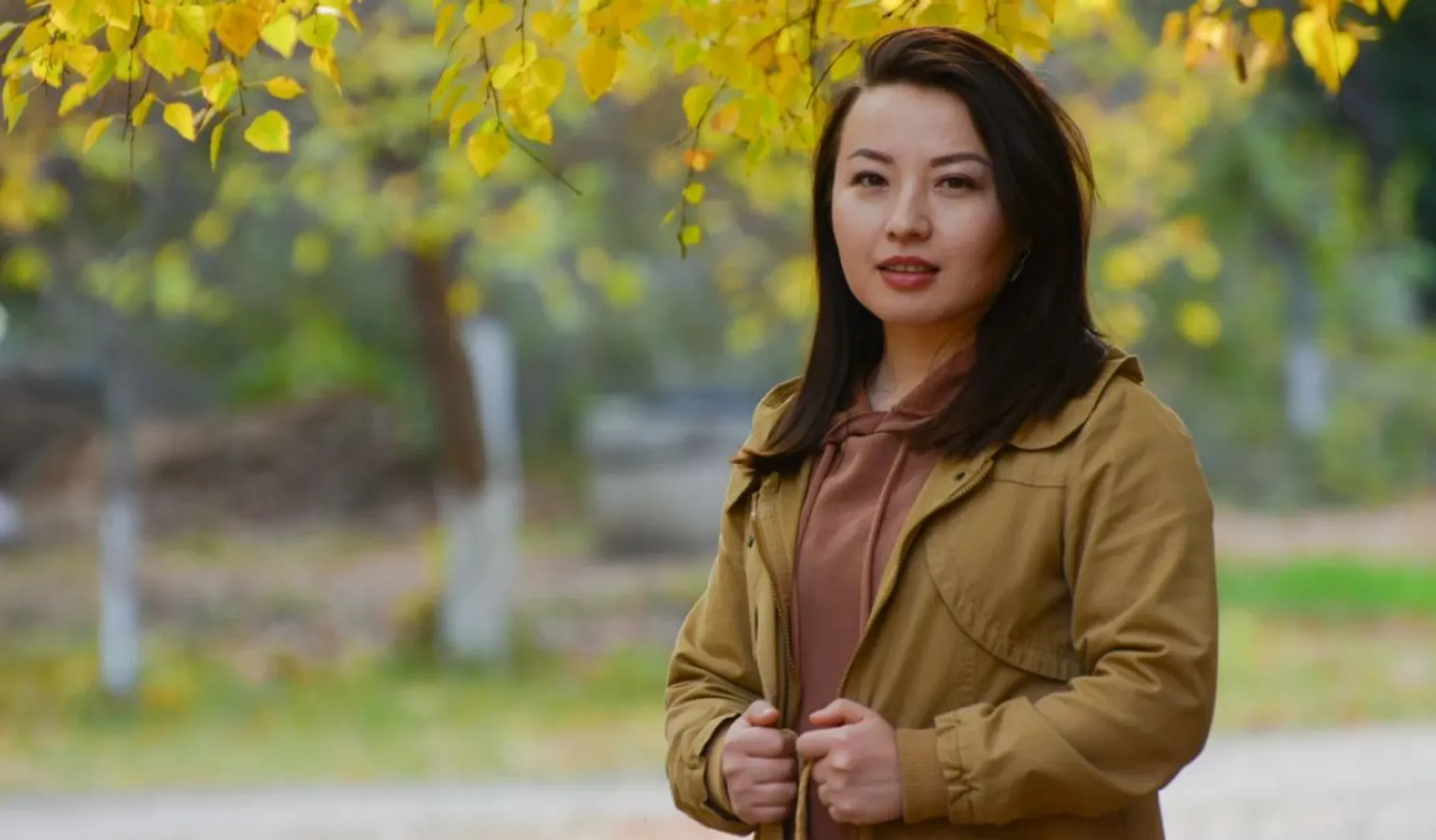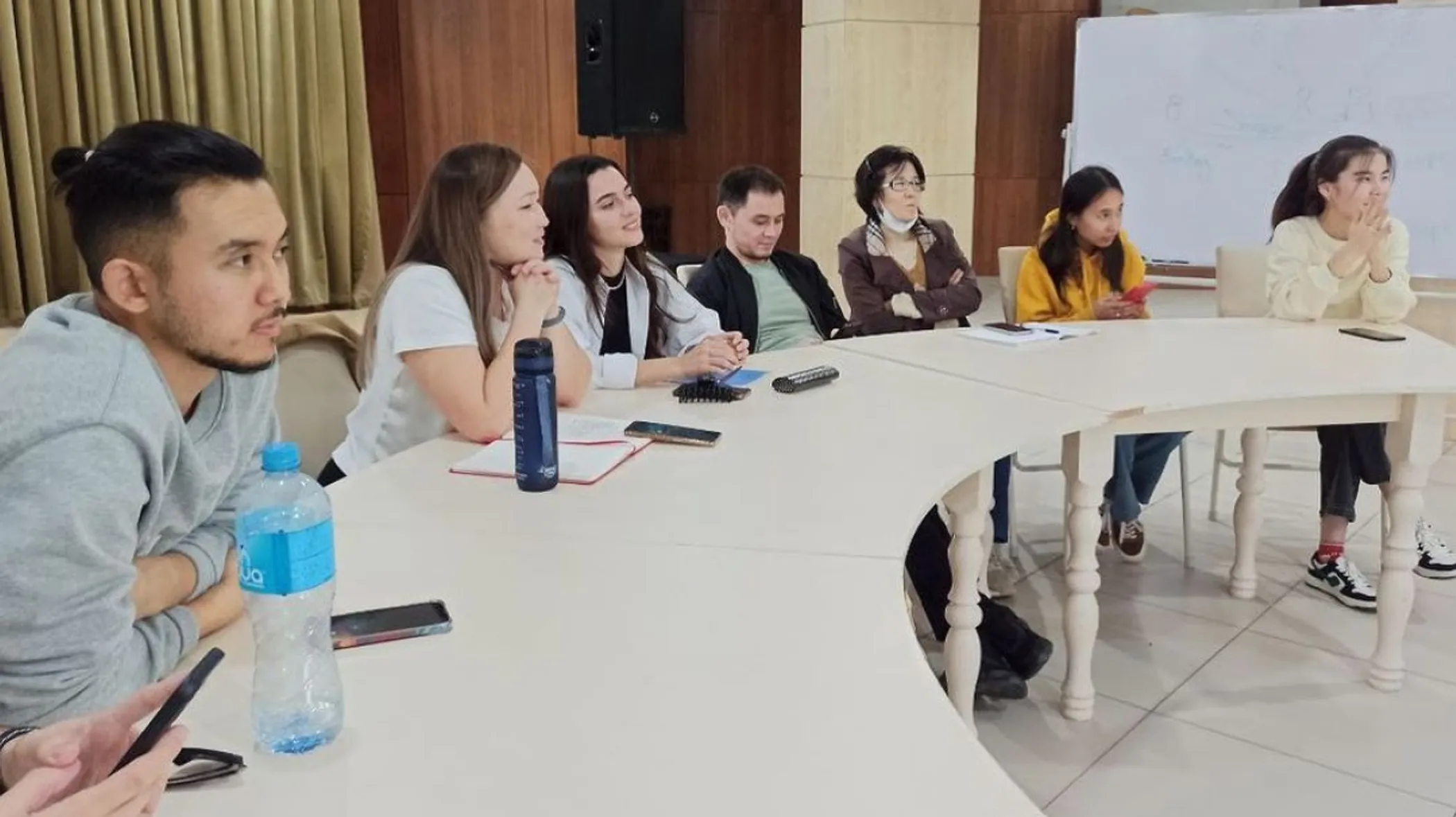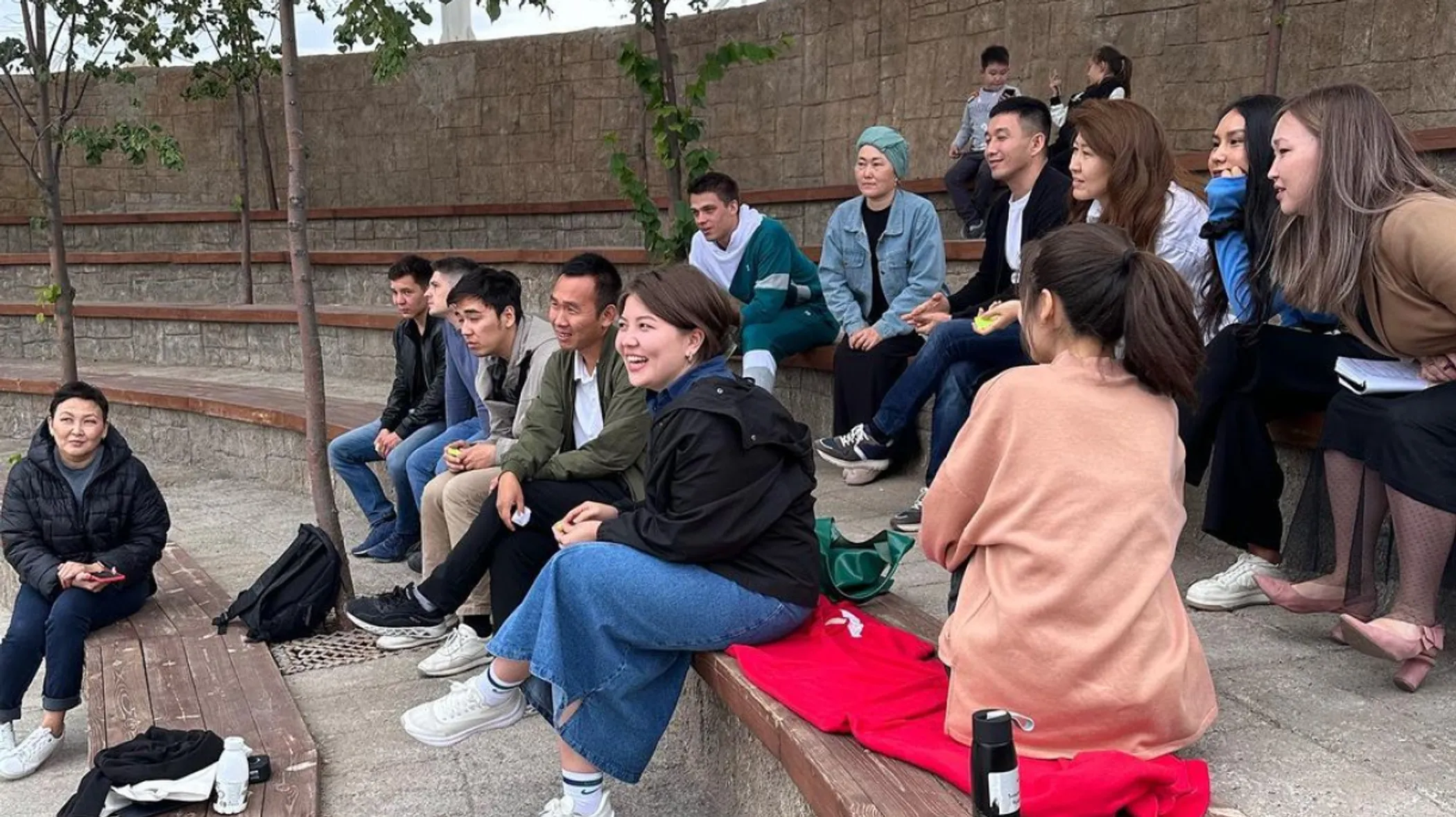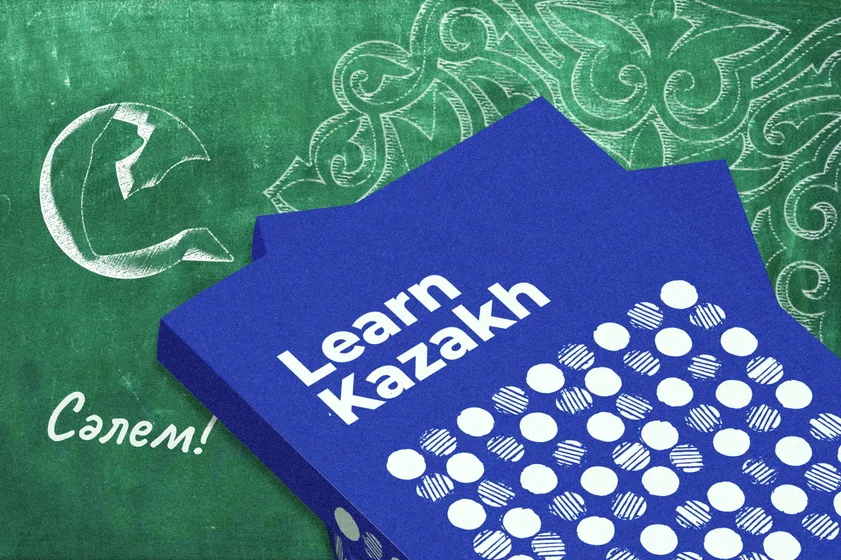It may surprise foreigners, but learning Kazakh in major cities isn't that easy. On the streets of Astana, for instance, a hopeful foreigner trying to practice their Kazakh may often get a response in Russian, or occasionally in makeshift English hastily constructed just for the answer.
Many people in our country still experience a speaking block when it comes to the language. To address this issue, last April, Almaty resident Alexey Skalozubov decided to launch a free speaking club in the city for anyone wanting to level up their proficiency in Kazakh. Most importantly, Batyl bol clubs seek to help overcome that speaking block.
It has been more than a year now, and Batyl bol clubs—or Be Brave clubs—have sprouted across the country like mushrooms after rain. Naturally, there is one in Astana. Like everywhere else, it operates purely on enthusiasm, and Zhazira Okubayeva, the club's coordinator, shared with QazMonitor that this community has had ample time to cultivate its own success stories and attract dedicated members.
How did Batyl Bol start in Astana?
We have had a club since June 2022. Everyone who wants to improve their spoken Kazakh comes to us. We are not a language club per se. We don't teach grammar—in Almaty [branch] they do—we emphasize conversational skills. Personally, I find this thing interesting and consider it a contribution to the development of the Kazakh language.

What level of language proficiency are the meetings designed for?
In general, we have no restrictions on the level of proficiency, and everyone is welcome to join. Speakers of all levels will find something suitable for them. We learn many new words. Even if someone has a speaking block at first, they can attend a few sessions, just observe, and gradually start participating.
We don't follow any specific methodology. We focus on colloquial words, covering everyday situations such as [communicating at] cafes, restaurants, taxis, stores, theaters, and movies — essentially, anything that might occur in these places. All this is so that people can communicate with each other.
We bring up current issues as well. For instance, during our last session, we talked about domestic violence [in Kazakhstan]. In essence, we cover everything that happens in the world, in our country. Our lessons take the form of conversations and dialogues, where we practice retelling, storytelling, reading, and word invention. In every session, we bring in fresh topics. Sometimes, we also attend the movie theater as a group, and just recently, we had a great time at a Kazakh stand-up.
How many people usually attend your sessions? Are they locals or foreigners?
Well, the most we've had is around twenty people. We hold meetings twice a week. Most attendees are locals, but last year, we had many newcomers, especially from Russia. There was a French woman who was in Kazakhstan for academic purposes; we also had an Italian linguist. However, they have since left [the country], so they no longer join our meetings.
Most of our attendees are adults in their twenties. There are also participants in their forties and fifties, It's an even mix of guys and girls — a straight-up 50-50. All have different occupations. They have one goal—to learn and speak Kazakh, to understand others.

What is the usual proficiency level of people who come here?
We cover different proficiency levels. Take one of our students; he started almost from scratch after moving from Russia. They didn't have a speaking environment back there, but he rapidly learned Kazakh. Then there's another one who learned Kazakh from scratch, but he also completed a course. Today, he has excellent Kazakh. It all starts with a wish. Participants shouldn't confine their improvement solely to our club; they have to improve their skills elsewhere—watch movies, talk to people, and listen to Kazakh speech.
We always say to our participants that they shouldn't limit themselves to conversations just once or twice a week. They should use the words [they learned] on the street, in cafes, so, in the language environment. This way, they can learn how to say hello in Kazakh, bid farewell, and say thank you. Start small, and then you'll have a desire to talk to people more.
How exactly do you overcome speaking block?
Here at Batyl bol, almost all people had a block at first. But you just come in and start speaking even if it’s broken Kazakh. Then, you see people like you, who can't speak, you just see that there are people like that and there are situations like that, and it becomes normal.

We learn new words, and participants no longer feel hesitant. If they can speak half-Kazakh and half-Russian on the street, they won't be shy anymore because they've started speaking. Even if you make mistakes in the beginning, but have the desire and the encouragement of people going through the same journey, learning becomes a unifying and stimulating experience.
When you start talking, no matter at what level, you realize that you can do it. Once a person thinks, 'It turns out I can speak and understand something,' they begin to make an effort. In a language environment, if someone tells them to 'just say it in Russian' because they didn't say it correctly, then there might not be a desire to speak in Kazakh [anymore]. We, on the other hand, try to reawaken this desire. Making mistakes is okay; the thing is to start.
Batyl bol in Astana is located at the House of Friendship (Dom Druzhby), Momyshuly Avenue 26 (NOTE: the Google Maps information is a bit out of date). The club’s regular sessions take place on Thursdays at 7:00 p.m. and on Saturdays at 4:00 p.m.










